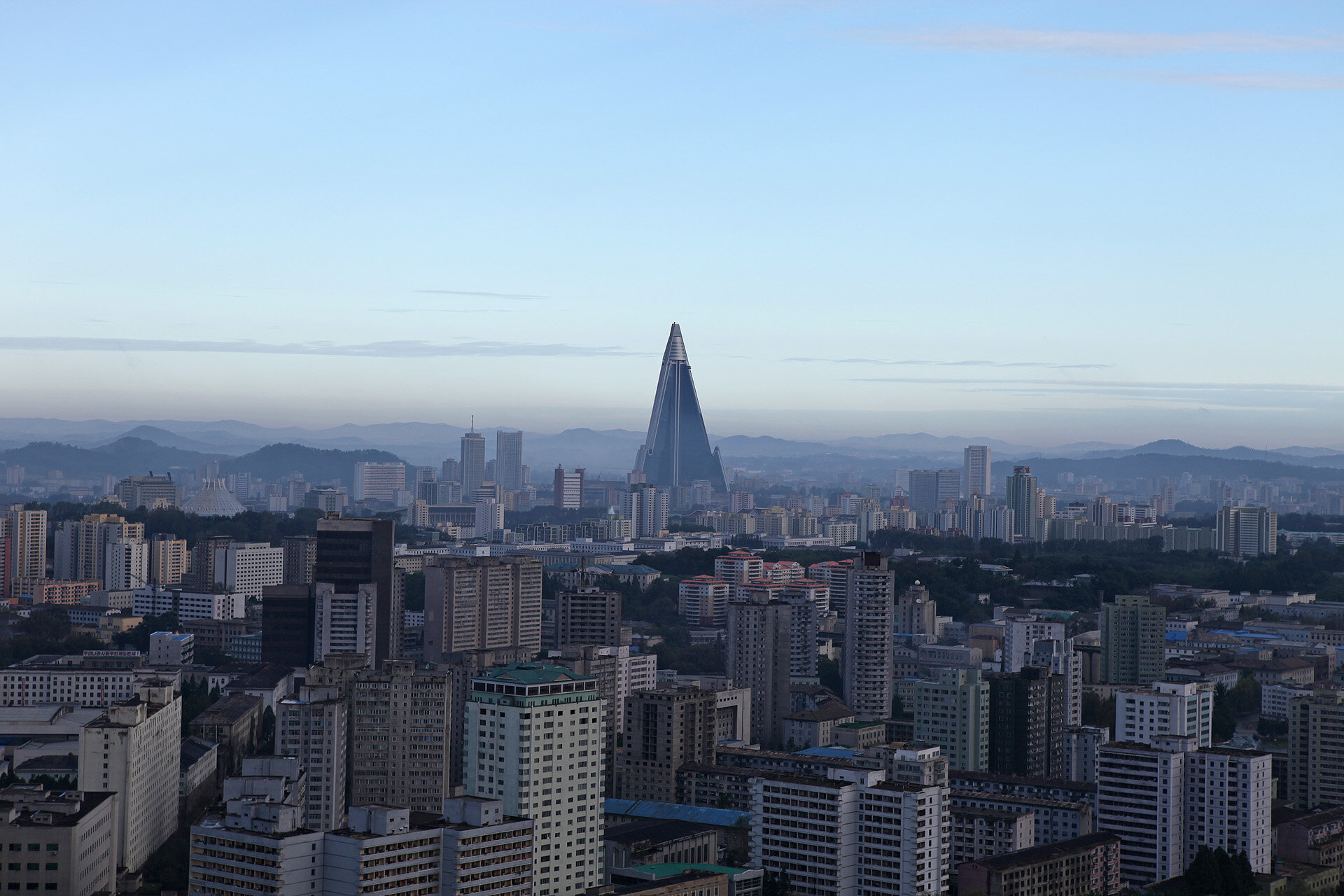Episode 20: Assassination by Prank - Part 1 - Kim Jong-nam - The Dictator’s Brother
Get ready for a saga about a murder where the murderers, themselves, were victims, and a chillingly contemporary story of how innocent individuals can fall through the cracks when nations clash. Nobody leaves this story with their hands clean.
Listen to Learn More About:
The mysterious assassination of Kim Jong Nam, Kim Jong Un's (the current dictator of North Korea) older brother
Kim Jong Un and his predecessors
North Korean Culture

The statues of Kim Il Sung and Kim Jong Il on Mansu Hill in Pyongyang
Pyongyang
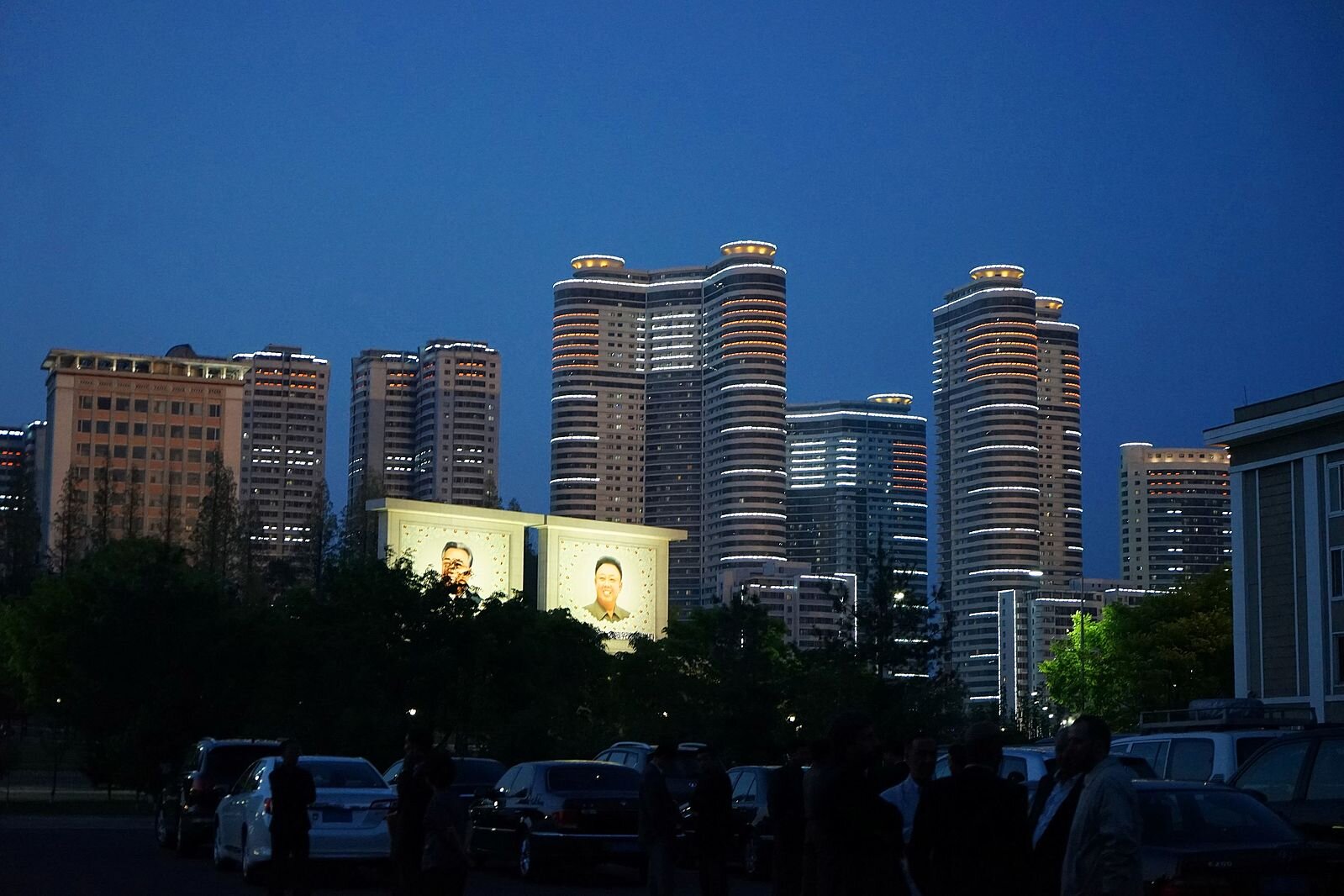
Pyongyang at Night
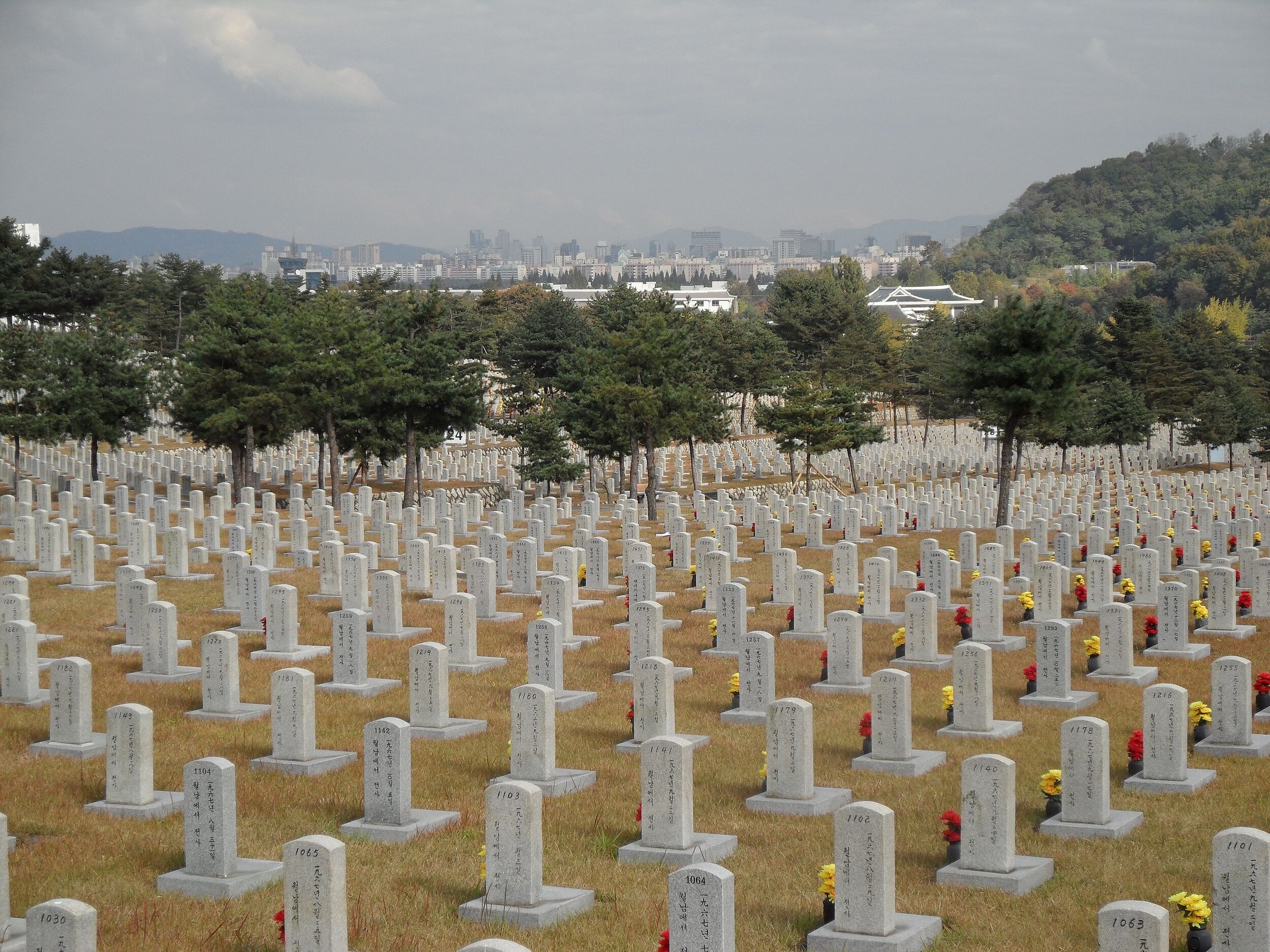
Gravesites in South Korean War Memorial
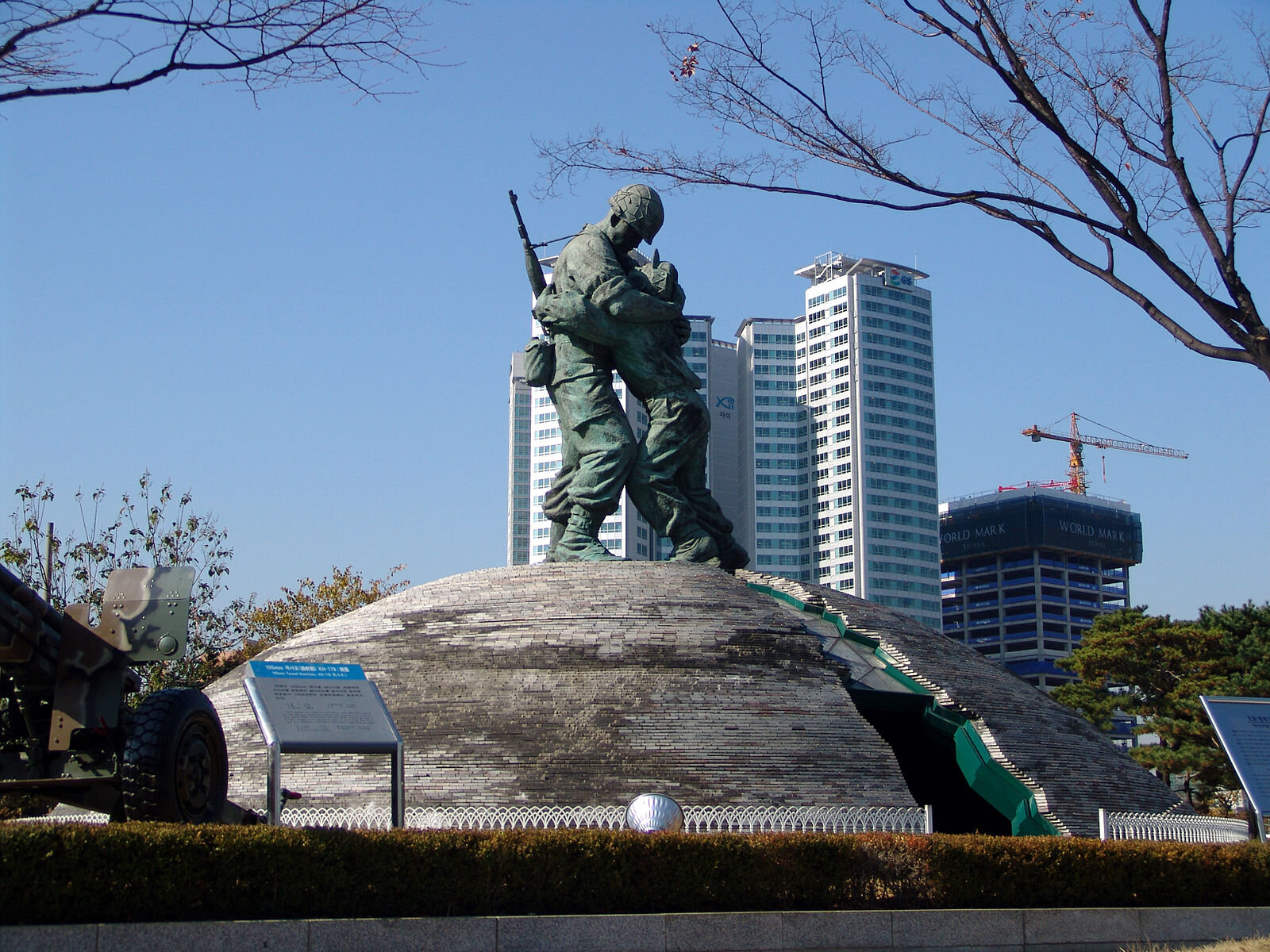
The statue of Brothers (Seoul War Memorial) : representing a brother from the south and a brother from the north and their dedication to achieving peace.
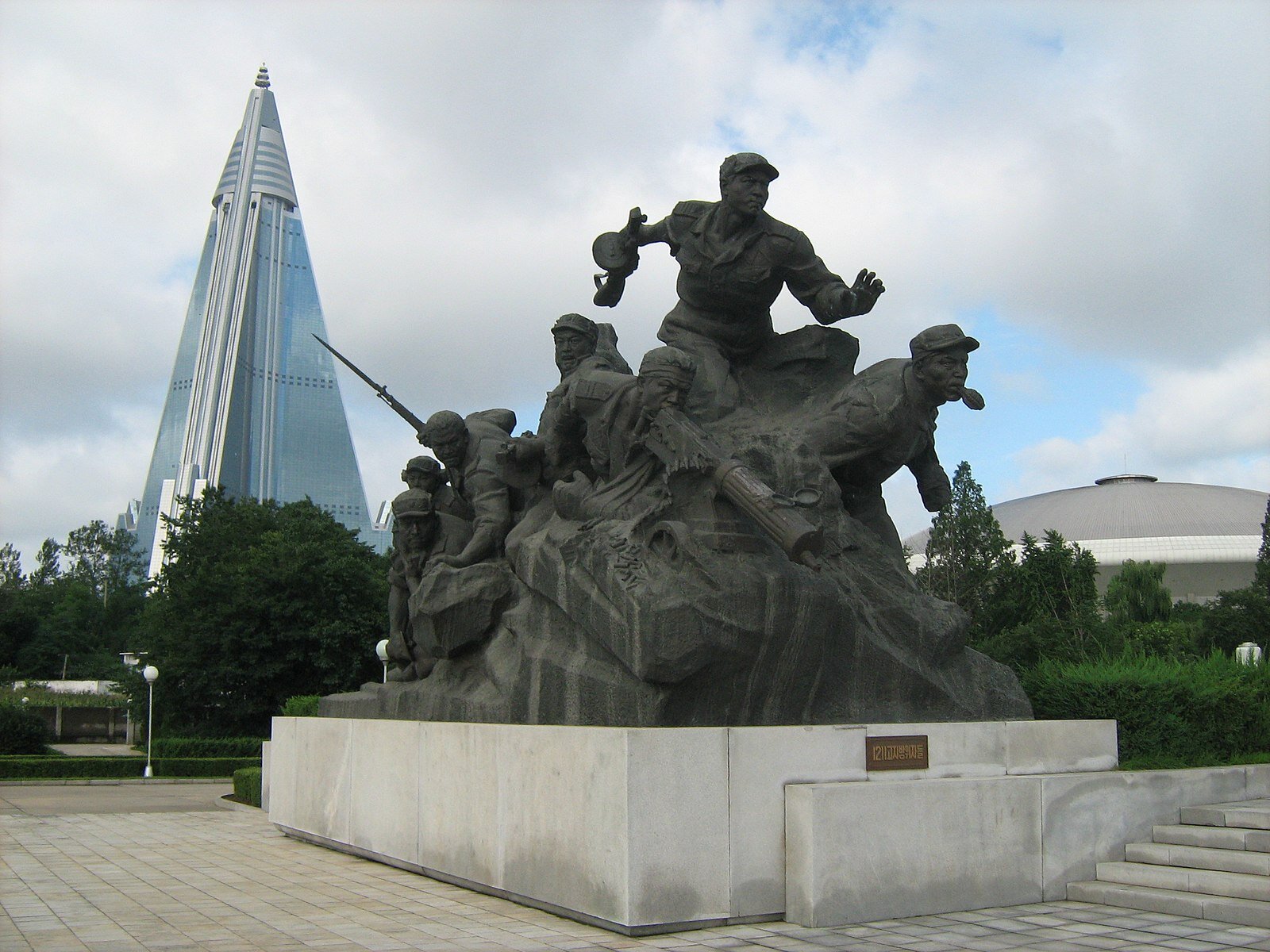
North Korean Pyongyang Korean War Memorial
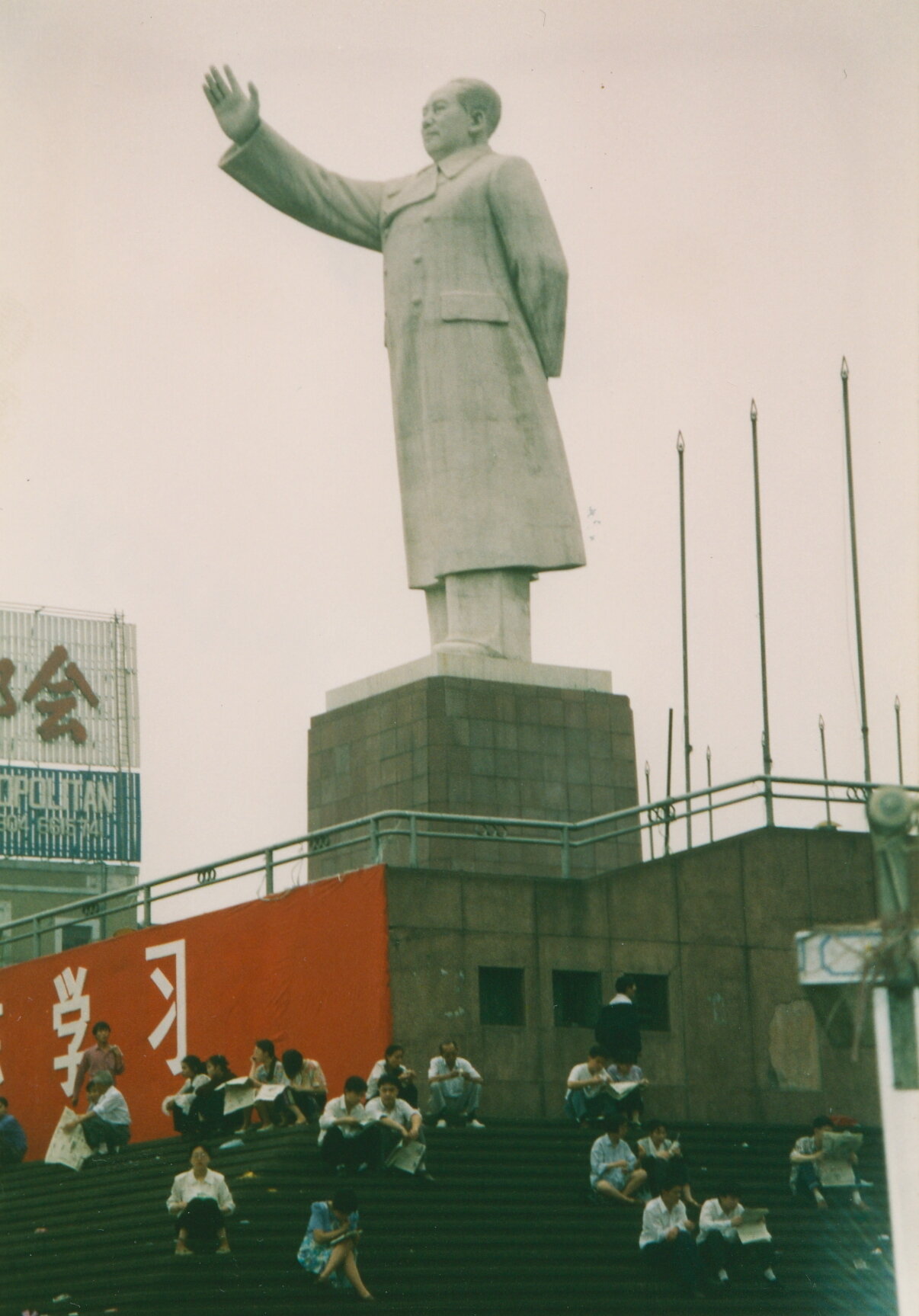
Chengdu, statue of Mao Zedong
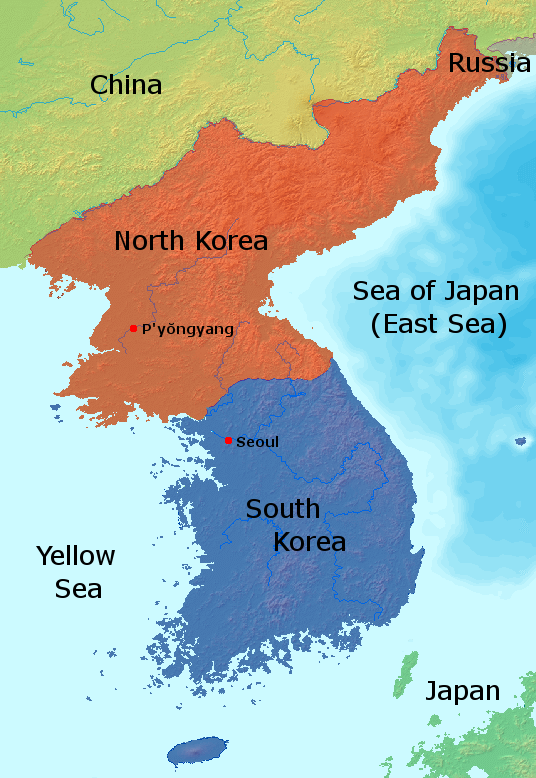
Korea Map

Rank insignia of Dae Wonsu for the North Korean Army

The Liebefeld-Steinhölzli public school in Köniz, Switzerland, reportedly attended by Kim Jong-un
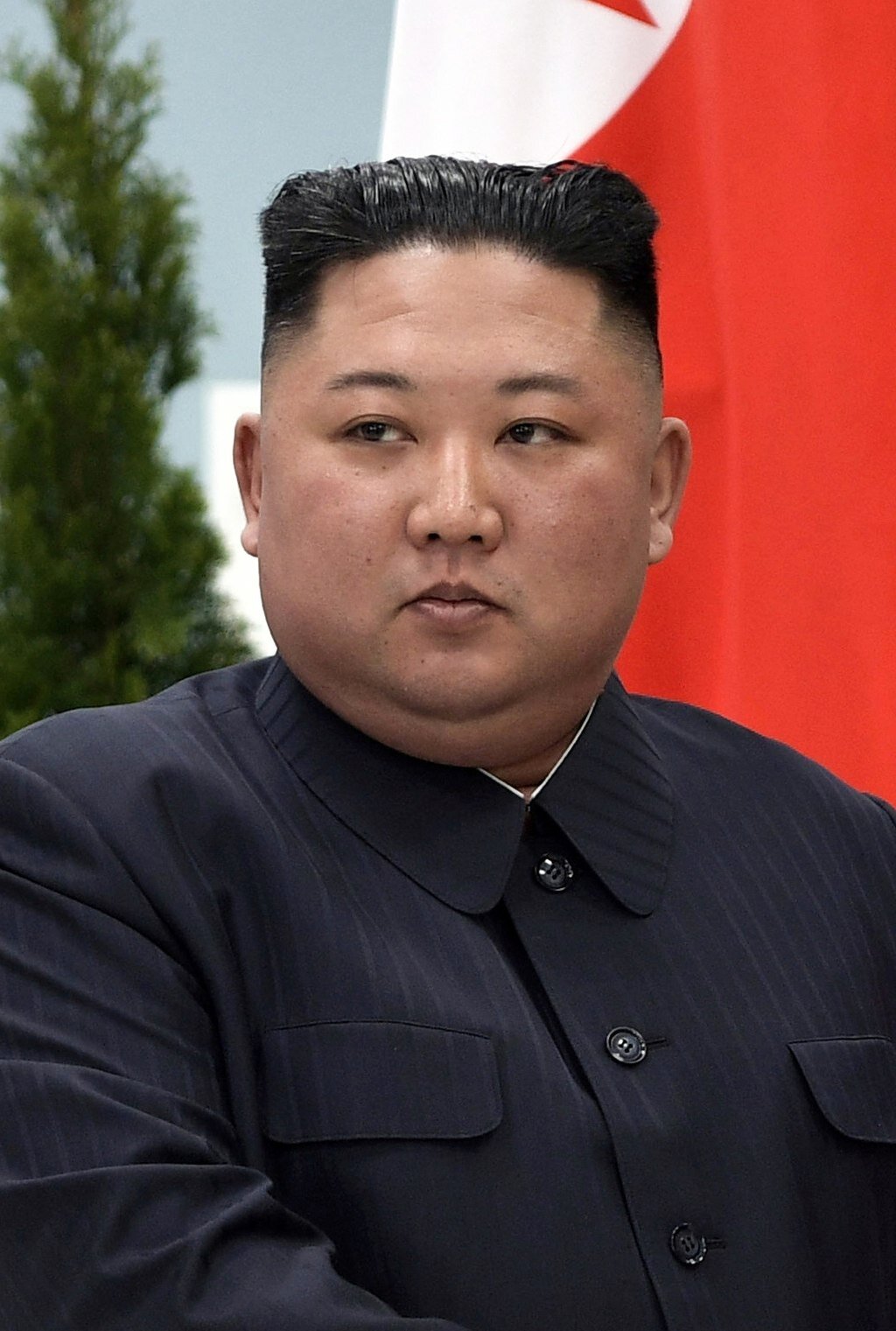
Kim Jong Un
Sources:
REFERENCES/ADDITIONAL READING/MEDIA:
Korean War by Joong Keun Lee
Telegraph: Women Assassinated Kim Jong Nam
BBC: The women accused of killing Kim Jong-nam
BBC: North Korea's History of Foreign Assassinations and Kidnappings
NBC News North Korea has a History of Assassination Attempts on Foreign Soil
WSJ: Korean Leaders Slain Half Brother was Said to Have Been a CIA Informant
Yet Again UK: Normalized Oppression a brief History of North Korea
Fox News: Kim Jong Un and North Kora Cult of Personality Explained
The Guardian: How North Korea got away with the Assassination of Kim Jong Name
MUSIC:
Ripley by Falls
Big Drum Barrage by Rhythm Scott
Sussex by Stephen Keech
Rising Sun by Colossus
Mystery by Third Age
Perfect Spades by Third Age
IMAGES:
Kim Jong Un b y Kremlin.ru : License
Rank Insignia of Dae Wonsu for the North Korean Army by Skjoldbro on Wikimedia Commons: License
The Liebefeld-Steinhölzli public school in Köniz, Switzerland, reportedly attended by Kim Jong-un by Sandstein on Wikemidia commons: License
People paying homage to the statues of Kim Il-sung and Kim Jong-il, April 2012 by J.A. de Roo on wikimedia commons: License
Korea Map By Johannes Barre (IGEL) on Wikimedia Commons: License
North Korean Pyongyang Korean war memorial by Jack Upland on Wikimedia: License
The statue of Brothers (Seoul War Memorial) by Danleo~commonswiki at Wikimedia: License
DMZ North Korean Side by Uri Tours on Flickr: License
North Korean DMZ By Stephan on Flickr :License
Chengdu, statue of Mao ZedongBy Arian Zwegers on Flickr :License
FULL SCRIPT:
On February 13, 2017, a man at Kuala Lumpur International Airport in Malaysia was standing at a kiosk, printing his boarding pass, just like countless millions of other air travelers on any given day at airports around the world. He was in plain sight of hundreds of people, and he was on camera, too, thanks to the airport’s closed-circuit TV system. So there were plenty of witnesses to what happened next.
A young woman, dressed in blue jeans and a light-colored top, ran up behind him, reached around, and rubbed her hands across his face, smearing them with an oily substance. She muttered the word “sorry” and hurried away.
Just seconds later, another woman, in a top with the letters “LOL’’ printed across it, walked up to the man, this time straight on. Just like the first woman, she smeared something on his face, then quickly walked away. Security cameras saw them rush to the restroom to wash their hands. This detail becomes very important later.
The man flagged down some airport security guards. Although the closed-circuit TV didn’t capture any audio, we can see him gesturing with his hands, pointing at his face, obviously trying to explain the strange encounter. The guards invite him to follow them to the airport’s medical facility.
But within moments, the man is unable to follow them. His walk slows, he starts limping. He sits down in a chair, and soon his body slumps, sliding down towards the ground. Airport personnel find a gurney and transfer him to it, but it’s too late; the man is unresponsive. 20 minutes after the first woman approached him, he’s dead.
The substances each woman had on her hands was harmless by themselves; but when the two were combined on his face, they formed VX nerve agent, a chemical compound so lethal that the UN classifies it as a weapon of mass destruction. He didn’t stand a chance. But who was he?
It took a whole day for Malaysian officials to learn his true identity; and that’s when the story took on international importance. Because the man murdered at Kuala Lumpur International Airport turned out to be Kim Jong-Nam, the eldest half-brother of the Supreme Leader of North Korea, Kim Jong-Un. And rather than being a grieving relative, the world immediately saw the dictator as the number one suspect.
The two women who carried out this bizarre murder in plain sight were in custody within three days. They were 28-year old Doan Thi Huong, originally from Vietnam, and Siti Aisyah, a 25-year old from Indonesia. Both women worked in the hospitality industry in Malaysia - Siti had a job at the Flamingo Hotel as a masseuse, and Huong was in food service.
How did they become assassins? As we unwind this bizarre tale, we’re going to discover that the key question might be – did they even know they were assassins? It’s very likely that they didn’t.
This is going to be a first on My Dark Path – we're covering this story across two episodes. This episode goes down the path of the victim, Kim Jong-nam – the history of his family and the country they have ruled over for three generations, and why his own brother may have targeted him for killing. And then next time, we’ll turn to the story of these two women, how they got involved, and what happened to them afterwards, as they became pawns in international politics. Both that story, and these two women, deserve their own episode.
Get ready for a saga about a murder where the murderers, themselves, were victims, and a chillingly contemporary story of how innocent individuals can fall through the cracks when nations clash. Nobody leaves this story with their hands clean.
***
Hi, I’m MF Thomas and this is the My Dark Path podcast. In every episode, we explore the fringes of history, science and the paranormal. So, if you geek out over these subjects, you’re among friends here at My Dark Path. Since friends stay in touch, please reach out to me on Instagram, sign up for our newsletter at mydarkpath.com, or just send an email to explore@mydarkpath.com. I’d love to hear from you.
Finally, thank you for listening and choosing to walk the Dark Paths of the world with me. Let’s get started with Episode 20: Assassination by Prank – Part 1 – Kim Jong-nam – the Dictator’s Brother.
PART ONE
25.6 million people live in the nation of North Korea, that’s more people than live in the state of Florida. And nearly all of them have been ruled for their entire lives by one family – the Kim family; which has kept this country brutally repressed and in desperate poverty since 1948. North Korea’s people know almost nothing about the world beyond their borders, even owning a device that can access the global Internet is a crime. And yet for all the combined compassion, goodwill, charity, and military might of the world, the problem of North Korea seems unsolvable. To understand why, we need to go back to World War II; when many of the decisions that led us here were made. I’ll warn you, there aren’t any bright spots ahead, no silver linings. If we’re going to tell the story about how the fate of two women got caught up in the political maneuverings of multiple nations; we need to talk about how every citizen of North Korea is, essentially, trapped in its own nightmare.
In 1945, Japan finally agreed to total surrender after the dropping of two atomic bombs on the cities of Hiroshima and Nagasaki. And so the business of war ended and the business of defining the peace began. Remember that the United States and the Soviet Union fought on the same side in World War II, but both knew that they would soon be at odds in a clash of superpowers – capitalist democracy versus Stalinism. So peace came with many complexities.
Korea was one of the biggest. Japan had controlled the country for 35 years, but now it had to surrender it back to the Korean people. What sort of government would rise to replace it? The Koreans themselves set up a temporary provisional government; but it didn’t last long – in August of 1945, the Soviet Union officially declared war on Japan. Japan was just days away from surrendering; but under this pretext, Stalin’s forces drove south into Japanese-controlled parts of Manchuria and North Korea. In response to this sudden incursion, two officers in the U.S. Pentagon quickly took an old map and drew a line across the 38th parallel, dividing the Korea peninsula. The two superpowers came to an agreement – the Soviet Union would occupy and administer the North, while America would do the same in the South.
This was similar to the proposal to divide the city of Berlin in post-Nazi Germany – with America and its allies administering the West, while the Soviet Union controlled the East. The tragic consequences were similar as well; with the division lasting for decades, splitting the entire country in two, and the territory becoming a proxy struggle for dominance between America and the Soviet Union.
A guerilla leader favored by Stalin, Kim Il-sung, became the North’s new leader. He was not someone the Korean people would likely have chosen themselves; he’d been living in exile in the Soviet Union for over two decades; what little schooling he had was Chinese, and his Korean language skills were limited. It took extensive training just to prepare him to read a speech to the Communist Party which the Soviets had written for him to deliver.
But support from Joseph Stalin mattered a lot more than the support of the population. The Soviet Union equipped Kim Il-sung with a massive, state-of-the art army and air force. Both the Soviets and the Chinese helped train North Korea’s pilots.
America was trying to build a democracy south of the 38th parallel, and both sides held their own elections. The elections in the South were sanctioned by the United Nations; and held on May 10th, 1948, where they officially established the Republic of Korea. The North refused to participate, and refused to let UN Administrators monitor their own elections. On September 9th, they established what they called The Democratic People’s Republic of Korea; with Kim Il-sung as leader. Both sides, to this day, claim the right to govern the entire Korean peninsula.
Within months, Il-sung was calling for the unification of the two Koreas, and he was willing to use military action to back it up. Although China was initially reluctant to help; with the offer of a treaty and support from the Soviet Union, the two much larger nations encouraged North Korea’s aggression. The belief was that a swift, overwhelming attack could overwhelm the South Korean military just like the blitzkrieg of Nazi Germany had overwhelmed so many of the nations of Europe.
But Stalin was concerned that an attack could draw in the participation of the United States; and he did not want direct confrontation between our army and his. Remember that, at the time, the U.S. was the only nuclear power – the Soviet Union didn’t conduct its first known tests until 1949. A little escalation was likely; too much escalation could lead to annihilation.
Then Mao Zedong, the Chairman of the Communist Party in China, pledged his country’s full military support. Stalin, knowing he would not have to send any Soviet troops, gave his approval. The Korean War began on June 25th, 1950. Within a matter of weeks, the North Korean army had swept through the South, driving the South Korean forces into a small corner of the peninsula. The UN swiftly passed a resolution deploying a peacekeeping force, including a large contingent of American soldiers. Together, the coalition forces helped South Korea push the invasion back to the 38th parallel, and beyond.
Those Chinese forces were drawn into the fight, and a dangerous stalemate ensued, with giant armies skirmishing and maneuvering for position along the border. After many months, the two sides started negotiating an armistice in the summer of 1951. The world held its breath, the possibility of another global conflict breaking out seemed terrifyingly close. Perhaps the most active opponent to any peace agreement was Stalin, who saw the war as an opportunity to drain the resources of the United States. But his health was rapidly failing; and not long after his death, the Korean Armistice Agreement was signed on July 27th, 1953.
It established a de-militarized zone, two and a half miles wide, along the 38th parallel, and both North and South Korea agreed to a cease fire. But what’s crucial to understanding the present situation is this – it was not a peace treaty. Legally, the two countries are still at war, and have been for seven decades. The area right outside the so-called “de-militarized zone” is one of the most heavily militarized in the world; with as many as two million troops on both sides, watching the border. Among those troops are 28,000 American military forces; still maintaining a presence for our South Korean allies.
While those fundamental facts haven’t changed, the danger on the Korean peninsula is always evolving. For one thing, North Korea is now on its third dictator from the Kim family.
***
According to a defector who escaped North Korea, if you ask a schoolchild there where their milk comes from, they won’t say it came from a farm or a cow or a dairy. Instead, they will say that it came from their Supreme Leader, and that it is because of his love and generosity that they are allowed to have milk today. This is what they are taught.
The government, the education system, and the media of North Korea are all ruthlessly disciplined around one message – the power and might of their ruler and protector, the Supreme Leader. This was Kim Il-sung from 1948 until his death in 1994. At this point, the Soviet Union had collapsed, and without their backing, North Korea was plunging into an economic crisis. But the position of Supreme Leader endured, and was taken by Kim Jong-il, the son of Kim Il-sung. He ruled until his death from a heart attack in 2011; and power is now in the hands of his son, Kim Jong-un. Every succession was the result of violent behind-the-scenes conspiracy, which we’ll get into, but the result is an unbroken line of dominance of a nation by three generations of the same family.
Citizens of North Korea, with very few exceptions, cannot travel beyond their borders or access any information except what their government provides them. And what their government provides, is pure Cult of Personality.
Children are drilled every day in school that the Supreme Leader is caring, compassionate, and altruistic; and that the United States is evil and conspiring every day to kill them all; and that only the Supreme Leader protects them. They learn this from classroom lessons, through literature, even through songs. Ancient mythology has been re-written to incorporate the Kim family. When students reach high school, they are required to enroll in courses focused solely on Kim Il-sung and Kim Jong-il.
What they’re taught goes well beyond the plausible – the Supreme Leader, they are told, is literally superhuman. Famous masterpieces of painting and music are credited to Kim Jong-un, who is also described as learning to drive when he was just three years old, and racing yachts when he was only nine. Children are taught that when his father, Kim Jong-Il, was born, a new star appeared in the sky. Kim Jong-Il could walk by just three weeks old, made 11 holes-in-one in a single golf game, and authored over 1,500 books all by himself. North Korea even tells its citizens that the Supreme Leader doesn’t have to urinate.
Remember what we said about cult psychology in our episode about the False Messiah and the Years of Lead in Brazil. The unrelenting assault of propaganda, combined with the element of fear, is powerful enough to make a person believe just about anything.
Throughout the country, you’ll find portraits, statues, paintings, and illustrations of Kim Il-sung, along with his son and grandson. People flock every day to one of more than 500 statues of the original Supreme Leader, leaving flowers and paying respects. Marches, rallies, and operas hailing the Kim family are constant. It is mandatory to wear a North Korean flag pin on your shirt at all times. When Kim Jong-il passed away in 2011, the outside world saw images of tens of thousands of mourners flooding the streets of North Korea, sobbing uncontrollably. They may have faced severe punishment if they didn’t mourn adequately. But they face severe punishment for nearly any offense.
The U.S. Justice Department published a lengthy and detailed report on North Korean human rights practices. It found that the government and its agents have no functioning investigative system; punishments, even killings, are politically-motivated or simply arbitrary. Anyone attempting to leave the country without permission can be killed on the spot or publicly executed. It’s one of many reasons why it’s so hard for the outside world to see or know what’s happening inside the country at any time.
The death penalty can be used if you’re found guilty of murder, or rape, or drug dealing, or possessing a Bible, or owning any videos from South Korea, or anything the government can define as suspicious activities. Sometimes, there is no criminal accusation – people simply disappear.
Defectors have reported widespread use of torture and inhumane conditions in North Korean prisons. Beatings, electric shocks, prisoners left out in the cold overnight, water torture – the list goes on. Prisoners regularly die from these cruelties, if they don’t die from overcrowding, foot shortages, or lack of medical care. And any woman in a North Korean prison is a likely target for sexual abuse.
Political prisoners face the most harsh punishment, their sentence might be expanded to include three generations of their family. And political crimes don’t just mean attempting to defect, or leaking information to the outside world. It’s considered a political crime if you sit on a newspaper with a picture of the Supreme Leader on it.
Citizens are regularly required to participate in political meetings, or public self-criticism sessions where they declare how unworthy they are to receive the blessings of the Supreme Leader. And if someone thinks you aren’t participating with enough enthusiasm, punishment comes quickly after. The government needs no permission to enter your home, or search your belongings, your correspondence, any information contained on any piece of technology you own. Phone lines can’t make international calls, and any cell signal that reaches over the Chinese border is jammed.
There’s no independent journalism in North Korea, no media of any kind except what comes from the government. That means books, radio, TV, newspapers; all of it needs the approval of the Supreme Leader. Sharing any content which isn’t approved is punishable by up to a year in a labor camp – five years for multiple offenses. Televisions and radios are designed so that they can’t receive signals from outside; and if you have a TV that’s been modified to pick up international programming, you can be jailed.
Internet access is limited to high-ranking officials and other designated elites. There’s a North Korean network that connects some top-tier schools and research institutes, but it cannot connect to the outside world. Government monitoring programs are installed on every smartphone and tablet, every webpage is logged and screenshots are randomly taken. Only about 18% of citizens have cell phones, they come with a censorship program pre-installed to block all foreign media. Monitoring software randomly inspects the phone’s history for any suspicious activity.
You need special permission to even live in the capital city of Pyongyang. Unauthorized assemblies and public meetings are prohibited. The only people permitted to travel outside the country are the government officials, business executives, artists, athletes, academics, and workers that the government deems trustworthy.
There are elections in North Korea, but they’re a farce. The government typically reports that 100% of the population voted, and that the government’s pre-selected candidates received 100% of the vote. But even in a vote this rigged, the Supreme Leader never needs to run for re-election.
It all seems beyond imagining; it challenges our sense of justice – how can a situation like this continue for so long, ensnaring so many people? How, in the 21st century, can 25 million people be so completely cut off human rights, from even accessing the knowledge that the rest of the world isn’t like the nightmare they live in? So you have to ask the question – whose interest does it serve to keep this status quo?
PART TWO
There’s no shortage of people, organizations, and nations who would like to do something about North Korea. But this reclusive, mercurial, poverty-stricken dictatorship has defied all efforts to undermine it. Sanctions have had little impact. The South Korean Army lined up across their border hasn’t swayed them. And no amount of protest from the United Nations has stopped them from building up an arsenal of chemical and nuclear weapons. They routinely make wild, bombastic threats, demand food assistance from foreign nations, and then the powerful keep most of the food and share just enough with the population for the country to limp along.
One way to look at the problem is to consider their borders. If North Korea decided to unleash their army and cross the demilitarized zone, the casualties in both halves of the Korean peninsula would be horrific. That stockpile of weapons of mass destruction could be deployed. Meanwhile, their other border is shared with Russia and China. If the government of North Korea fully and finally collapsed, millions of refugees would stream across those borders; creating one of the largest humanitarian crises in history. Russia and China still actively support the Supreme Leader in part out of that strong self-interest, helping just enough to keep the country functioning.
There are more abstract worries to some of the entrenched powers in Asia. If the two Koreas were even interested in reunification, if they could actually manage the messy, complex, possibly dangerous process, and produce a nation that invested in all its citizens, that didn’t spend so much on military escalation, would they become a more dominant economy in Asia, as Germany did in Europe when it reunified? Would this threaten the economic power of China, Japan, and others? It’s chilling to consider the inhuman calculus at work when such large powers weigh the costs and benefits of changing the status quo.
Which leaves us in this current state of misery, where the grandson of North Korea’s first dictator rules over a nation with a long track record of rogue international behavior, including kidnappings and assassinations. Kim Jong-un’s power is unchallenged, it was his first order of business when he took power; anyone who might make a claim to the position of Supreme Leader had a very short life expectancy; including, as we’ll discuss, members of his own family.
Kim Jong-un wasn’t originally first in line to inherit the title, though. So how did he wind up as North Korea’s new dictator in 2011?
***
This brings us back to Kim Jong-nam, who was the oldest half-brother of the current Supreme Leader. The family tree of a dictator can get somewhat complicated, you might imagine – Kim Jong-il had a patchwork of wives and domestic partners, and fathered at least six children that we know of. Jong-nam was the oldest – born on May 10th, 1971 in Pyongyang. His mother was a Korean actress, Song Hye-rim, with whom the Supreme Leader had a long-running domestic partnership. Kim Jong-il was notoriously such an enormous movie fan that he would arrange to have filmmakers and actors he admired from South Korea kidnapped, so they could make movies for him.
Now, Kim Jong-il’s father actually disapproved of his philandering, so Kim Jong-nam was kept secret for the first years of his life, homeschooled by his mother’s sister. When he was 8, he was sent to live with his maternal grandmother in Moscow. He attended boarding schools both in Russia and Switzerland, receiving the kind of genuine education that North Korea’s own citizens never get – he studied political science, technology, learned to speak German, French, and English. As the eldest son, it was naturally assumed that he would become Supreme Leader some day; and unlike his father and grandfather, he seemed to be actually studying how to do it well.
But when he returned to North Korea, his father, Kim Jong-il, had married another woman, was carrying on multiple affairs, and had fathered several more children among them. He lived at an oceanfront compound with his many partners, and his eldest son was not permitted to visit.
Cast out from his father’s love and attention, he went to work for the Ministry of People’s Security, what passes for a law enforcement agency in the country. They protect North Korean VIP’s, gather intelligence, manage the nation’s prison system, protect nuclear power plants, and also supervise the distribution of food to the population.
It was the late 90’s, and with his international education in computers, Kim Jong-nam was put in charge of the country’s technology development program. It was a high-profile job and, by all accounts, he performed it well; it added to his reputation as a future Supreme Leader. But the question remained – did he even want the position? Amazingly, what he seemed to want far more than absolute power, was to take his family to Disneyland.
***
Not long after Kim Jong-nam had his first child, he started making secret trips to Japan. The two countries have a strained relationship to say the least – when North Korea wanted to train intelligence operatives how to speak convincing Japanese, they simply kidnapped Japanese citizens from the coast nearest to North Korea. Plus there’s the fact that no one in North Korea can leave without the government’s permission. So Kim Jong-nam started using false ID’s and passports to make his trips.
In 2001, in an attempt to take two female companions plus his son to Tokyo Disney, he obtained a counterfeit Chinese passport with a fake name. Relations between China and Japan were a little more functional.
Unfortunately, his passport didn’t fool airport security in Japan, and Kim Jong-nam was taken into custody, then deported to China. It was an international embarrassment for his father, Kim Jong-il, who canceled a trip to China in response. This one incident, it seems, forever eliminated Kim Jong-nam’s chances of becoming the Supreme Leader. By 2003, he was living in exile, in the Chinese-controlled region of Macau.
The Chinese government protected Kim Jong-nam, to a degree; there was always a chance, after all, that he would end up in power. North Korea monitored his actions aggressively, but it was risky to move against him. Suddenly, Kim Jong-nam was doing something almost no one else on Earth had the ability to do – openly criticize the North Korean government from a position of influence.
And while there’s not enough publicly-released information to go into clear detail, there is confirmation that, as power passed from Kim Jong-il to Kim Jong-un, the eldest brother, living in exile, was taking occasional meetings with agents from the CIA.
So with his chief rival out of the way, how did Kim Jong-un, the younger brother, secure his path to power? How was he able, at just 28 years old, to so quickly establish an unbreakable grip on a whole nation?
***
There was still one more older brother – we haven’t talked about him yet. His name is Kim Jong-chul; he and Kim Jong-un came from the same mother. After the Tokyo Disney incident, North Korea began to describe her as “The Respected Mother who is the Most Faithful and Loyal Subject to the Dear Leader, Comrade Supreme Commander.” The public largely assumed that as the next oldest, Kim Jong-chul was now the heir apparent. But in fact, he was out of the running; and maybe had never been in it.
One common element you find in violent dictatorships is an obsession with a particular idea of masculinity. Cruelty, aggression, braggadocio and conquest are the most manly virtues. Thoughtfulness, doubt, fear, or compassion are considered too womanly and too weak. It’s no coincidence that the rights and freedom of women are ruthlessly suppressed in such cultures, anyone who shows a hint of what they would consider feminine values is seen as unworthy of authority.
And here was the thing that doomed Kim Jong-chul, the middle son. We don’t know nearly enough to speak to his sexuality, or what behaviors in particular were seen as suspect, but for years the rumors spread – Kim Jong-il didn’t trust his middle son, saw him as too…effeminate. Merely the idea that he acted, in his father’s eyes, like a girl, meant that he could never be a Supreme Leader.
By the time Kim Jong-il’s health started to decline in the late 2000’s, the leading candidate to replace him was now the third son, Kim Jong-un. This was made official in 2009 – he had just turned 26. So who was he?
***
As we mentioned, Kim Jong-un was just 28 when he fully stepped into the title of “Dear Successor”. Details of his life have been pieced together by guesswork from American and South Korean intelligence agencies. It’s believed that he attended private schools in Switzerland under a fake name; whoever this student was, classmates described him as ambitious but somewhat shy. He showed little interest in politics, his major passion was basketball. He would draw pictures of Michael Jordan, play video games, watch Jackie Chan movies. Perfectly ordinary for a teenage boy at that time; but apparently he would also occasionally tell friends that his father was the ruler of North Korea.
He had a taste for the finer things that the world outside North Korea offered – the family’s former chef remembers that he loved to drive a Mercedes Benz, to drink Johnnie Walker whiskey. The first time he was officially mentioned by the state media, it was to announce that he had been promoted to a military rank equivalent to a four-star general. The theory is that this was a hasty attempt to build up his credentials in the public’s eyes as his father’s health failed. But Kim Jong-il faded faster than they anticipated; he died on December 17th, 2010.
There was one, final threat to Kim Jong-un. Because of his youth and inexperience, there was talk that, while he would undoubtedly become Supreme Leader someday, a temporary caretaker might rule while he matured. A Supreme Leader Regent, if you will. There was a clear candidate for the job – Kim Jong-un’s Uncle-in-law, the longtime second-in-command to the newly-deceased Supreme Leader. His name was Jang Song-thaek.
Jang Song-thaek had loyally served the government since the 1970’s. Despite political machinations that sometimes saw him re-assigned to projects far from power, he had an uncanny ability to excel in those positions and work his way back into the inner circle.
That sort of popularity can come at a price, though. The first time rumors swirled that he could serve as Supreme Leader after Kim Jong-il, he was removed from his role in Korea’s only political party. Rumors reached South Korea that he was under house arrest, forced into a re-education program. A military truck rammed a vehicle he was in, trying to kill him. Despite all this, he worked his way back to Kim Jong-il’s side.
Whatever disputes occurred, whatever deals were made behind the scenes, we’ll never know. What we do know is that, less than a month after Kim Jong-Il’s death, Kim Jong-un was named Supreme Leader; no caveats, no regents, no waiting period. His Uncle-in-law pledged his absolute allegiance, and remained in his position as second-in-command.
But that was far from the end of the story. Kim Jong-un had power; but if you know anything about dictators, you know that they don’t stop until they’ve eliminated every possible threat.
PART THREE
Jang Song-thaek was instrumental in smoothing the transition. If North Korea was going to survive, it needed to maintain a functioning relationship with its most important ally, China – and remember, the eldest son, Kim Jong-nam, was living there in exile, untouchable and increasingly vocal in his criticism of the government. Jang Song-thaek, for the first year of Kim Jong-un’s rule, helped to maintain a sense of continuity.
But then something changed. We don’t know what happened – maybe nothing happened, and Kim Jong-un simply changed his mind about his Uncle. That’s something dictators have been known to do. Jang Song-thaek was suddenly demoted drastically, appointed to the head of North Korea’s Physical Culture and Sports Guidance Commission. He was noticeably missing from meetings of high-level government officials, meetings where his presence had been consistent and expected for many years. When Kim Jong-un made his first official visit to China in 2013, his uncle did not travel with him; this was a clear sign that he was being cut loose of any responsibility in the government.
One thing it’s important to remember about governments like this is that they survive because of the people who get rich from the system. If you take care of the generals, so to speak, they’ll take care of you. There were long-standing rumors that Jang Song-thaek was too sympathetic to Kim Jong-nam, the brother in exile; but as far as we can tell, the step that proved truly fatal had to do with control of the fishing industry on North Korea’s west coast. Back in 2011, Jang had arranged for it to be controlled by his loyalists. Then the military seized it for themselves. Fighting broke out between the two factions; and some of Kim Jong-un’s soldiers were killed. This was a step too far – you couldn’t strike against the Supreme Leader’s military and expect to get away. Jang Song-thaek was never seen in public again.
A lengthy statement was put out through the North Korean media that described Jang Song-thaek as despicable human scum, worse than a dog, guilty of acts of treachery, of betraying his party and his family, of attempting to topple the North Korean government in an evil, orchestrated power grab. In December of 2013, Jang Song-thaek was tried on these charges by a military tribunal. The trial, as you can imagine, didn’t take long. In fact, the period from when he was removed from office to when he was executed by firing squad, was just four days. The similarity to the show trials and purges performed under Joseph Stalin, who did so much to influence the creation of North Korea and the installation of Kim Il-sung, isn’t a coincidence.
Remember when I said that political crimes were considered the worst of all crimes in North Korea, and that your own guilt could spread to members of your family? Jang Song-thaek’s nephew and brother-in-law were North Korea’s ambassadors to Malaysia and Cuba, respectively. They got an unexpected summons to return to Pyongyang; where they were executed, too.
More relatives were purged, children included. A South Korean news outlet even reports that one of the nephews was executed by flamethrower. References to Jang Song-thaek’s names were scrubbed from all North Korean media; it was a comprehensive effort to erase him and his whole family from existence and history.
Was he loyal? Was he a threat? In the end, it doesn’t matter. All that matters is what the dictator felt about him. Whatever skills and experience in being a Supreme Leader that Kim Jong-un may have lacked, his willingness to sentence anyone to death seems to have come naturally. He reportedly had his defense minister executed for dozing off during a rally.
***
Kim Jong-un had mastered the use of fear in holding power; but he needed something else to carry on in the tradition of his father and grandfather – he needed that benevolent public face. His plan didn’t have anything to do with giving the population more food, or more rights; instead, he wanted to bring modern pleasures and pastimes to North Korea. He envisioned upgrades like those he had seen in other countries – a place to get a latte, or take a pilates class. A water park to cool off on a hot day. Whether a regular citizen would have the money or even the permission to enjoy these pleasures didn’t matter; Kim Jong-un felt that the citizens he ruled would feel happier just knowing they lived in a nation great enough to have such things.
In the meantime, the cult of personality around him was building momentum, reassuring the people that their new Supreme Leader was just as much a superhuman genius, athlete, artist, and warrior as his predecessors.
It seemed as though he had covered all his bases; except one – his older brother.
***
Kim Jong-nam only grew more vocal in his calls for reform after the purge of Jang Song-thaek and his family. He even told a Japanese journalist that, without governmental reform, the Kim dynasty would topple, and his younger brother would wind up as a puppet, a figurehead. Remember, most of his education took place outside of his home country – he’d seen how the rest of the world lived, how a truly modern nation looked and operated. North Korea is one of only four nations where Facebook is banned; but Jong-nam had his own Facebook profile, under a fake name. You can still access it, by the way, it’s under the name Kim Chol; but it’s not very active.
Everything Kim Jong-nam was doing could have seen him executed if he was on North Korean soil, but North Korea knew it wasn’t in a strong position to provoke China. China was actually backing international economic sanctions against them over their nuclear weapons program. China had always refused to help North Korea in developing nuclear technology; their training and expertise had come from the Soviet Union. At the time, North Korea said they only wanted to develop nuclear technology for peaceful purposes, for energy independence. It’s an open question whether the Soviet Union believed this fiction, but they helped just enough that North Korea was able to advance from peaceful purposes, to working weapons.
So their relationship with China was tense; and Kim Jong-un had made it that much worse by slaughtering Jang Song-Thaek and his family. China had thought highly of Jang. So if they were determined to protect Kim Jong-nam, the Supreme Leader did not have many options. Unless, that is, Kim Jong-nam left China.
***
Remember when I said that we had confirmation that Kim Jong-nam met with CIA agents? Given how secretive and repressive North Korea is, he was a potential treasure trove of information about the inner workings of the government and his own family. It’s natural the CIA would be interested in having a working relationship with him. But we don’t know just how far that relationship went.
We do know a couple of things – one, that North Korea had already made at least one attempt to kill Kim Jong-nam. A government agent, acting under orders, tracked down where he was living, and offered a large sum of money to a taxi driver to run over the exiled brother. But the taxi driver never did it.
The other thing we know comes from Kim Jong-nam’s belongings during his fateful trip to Malaysia. That day at the airport, his trip was over, he was on his way back to China, back to safe territory. During his trip he had gone to Langkawi, an island vacation retreat. We know that, at a hotel there, he met with an unidentified Korean-American, a man believed to have connections to the CIA. Then, after he was assassinated, the baggage he had with him was examined thoroughly. He had $138,000 in cash in his bag, as well a laptop computer. A forensic analysis of that computer revealed that a large amount of data had recently been downloaded to a flash drive. The flash drive was never found.
Was he exchanging information for money? Did he need the money badly enough to risk exposing himself? It’s a theory that matches the evidence. And even if it wasn’t the case, he put himself in incredible danger by leaving Macau. He gave his younger brother the opportunity to finally destroy the biggest threat to his position.
Maybe Kim Jong-nam felt safe in Kuala Lumpur International Airport – in plain sight, surrounded by cameras and security officials. He failed to imagine just how urgently someone wanted him dead, and just how audacious a plan they were willing to execute to see it done. That failure of imagination, more than anything else, is what cost him his life.
PART FOUR
I can’t give you anything to make you feel extra sympathy for Kim Jong-nam. His ideas for reform in North Korea didn’t involve moving it towards democracy – he believed its government should be modeled more after China’s. Maybe that helps explain why China was willing to protect him and amplify his criticism. In a sense, they were keeping their options open, holding on to a backup in case Kim Jong-un’s Supreme Leadership didn’t work out. A backup that might make some cosmetic adjustments; but who, in China’s eyes, wouldn’t disrupt the stalemate the world is in right now.
We’ve talked about the population of North Korea, over 25 million people. But don’t forget that China holds almost 1.4 billion people. To a superpower that size, maybe those 25 million people are just pawns. Or more accurately, one pawn, guarding their most vulnerable flank, but with its own nuclear missiles, distracting the world with its cruelty and bluster, demanding constant vigilance from America and South Korea.
As long as the geopolitical game stays this way, the people of North Korea are doomed to lives of starvation and terror. But even for the lucky ones, the privileged citizens who sit close to wealth and power, things aren’t ultimately, that much better. Born just one step away from absolute power. Kim Jong-nam nevertheless died in a public spectacle, in excruciating pain, because it turned out that his whole life was a dark path that only led to two possible destination – become the Supreme Leader, or die because your existence is a threat.
And as for the instruments of his murder, those young women I mentioned, Doan Thi Huong and Siti Aisyah? Their story shows us the irony that people who come from nothing can still take everything from you. It shows the astounding, elaborate planning that went into setting up this lethal “prank” for Kim Jong-nam. And it shows how their own fate after the deed was done was going to have nothing to do with their guilt or innocence, but just how much other countries were willing to risk provoking a murderous dictator. Part 2 of our story is coming in two weeks…
***
Thank you for listening to My Dark Path. I’m MF Thomas, creator and host, and I produce the show with Ashley Whitesides and Evadne Hendrix; and our creative director is Dom Purdie. This story was prepared for us by Roseanne Sinclair. Our senior story editor is Nicholas Thurkettle and our fact-checker, making his debut with My Dark Path, is Nicholas Abraham; big thank yous to them and the entire My Dark Path team.
Please take a moment and give My Dark Path a 5-star rating wherever you’re listening. It really helps the show, and we love to hear from you.
Again, thanks for walking the dark paths of history, science and the paranormal with me. Until next time, good night.


